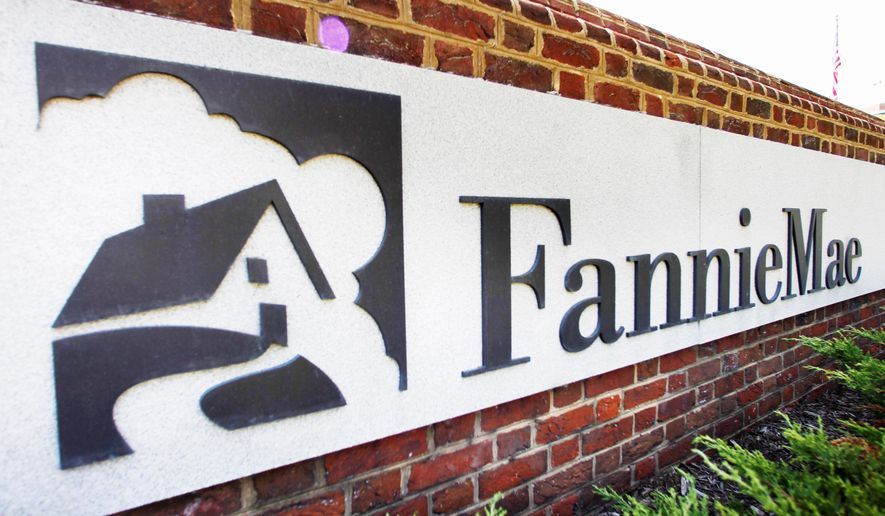A federal judge has issued a stinging rebuke to the Obama administration’s recent attempt to shield documents from disclosure in a case that could yield important clues about the Treasury Department’s relationship with mortgage giants Fannie Mae and Freddie Mac.
Government lawyers had argued they could redact key information before releasing records to the public by saying the documents related to the “deliberative process.” But in a ruling last month, U.S. Federal Claims Court Judge Margaret M. Sweeney rejected that, saying the government was illegally cutting corners.
“Defendant asserts that the court should merely take its word that the documents — some of which defendant itself has not reviewed — are privileged. This is contrary to law.”
The ruling means discovery in the case can continue, though there’s still a protective motion in place, so it’s unclear when or whether documents will be made public. Still, government watchdogs cheered the ruling, saying it represented an important pushback against a tool in the administration’s increasingly use of the exemption to try to keep embarrassing information secret.
“Theft is not privileged,” Tim Pagliara, head of shareholders group Investors Unite, said in a statement after the ruling. “Investors deserve to know when the U.S. Treasury knew that Fannie and Freddie would become profitable and how that factored into the decision-making process.”
The case the shareholders filed sought information about the administration’s dealings with the two mortgage enterprises, including some of the background behind a complicated 2012 rule issued by the Treasury Department that shareholders argue has shut them out of profits.
SEE ALSO: Justice Department overstated mortgage fraud successes
The shareholders are seeking documents detailing the back-and-forth behind the rule.
Open government laws, and President Obama’s own instructions to his agencies, create a presumption that information is to be made public.
But the laws include some exemptions to protect national security, privacy, legal advice and the deliberative process, known in open records law as exemption b(5), which was included so government employees would feel they could freely discuss and discard ideas without worrying about it all becoming public.
Dan Epstein, executive director of Cause of Action, said agencies seem to be turning to the deliberative process carve-out more often, and it requires commitment to fight. His group recently filed open records lawsuits against numerous agencies, claiming the White House has been scrutinizing and slow-walking information that agencies are supposed to promptly release under the Freedom of Information Act (FOIA).
“People in the FOIA community are not heavily resourced with the ability to litigate, and so agencies have an incentive to overapply the exemption,” he said.
Anne Weismann, chief counsel for the watchdog group Citizens for Responsibility and Ethics in Washington, said when her group receives responses to open records requests that are blacked out because of deliberative process exemptions, she almost always fights decisions in court.
SEE ALSO: KUDLOW: The Obama bank shakedown
“The reason why is because it’s so overused,” she said. “Some call it the ’withhold because you can’ exemption. Groups like ours and the media, you want to know why agencies are doing what they’re doing, but all of the stuff that would explain [falls under] the deliberative process privilege.”
Justice Department records show both FOIA requests and the use of the b(5) exemption rose last year.
The administration handled 678,000 requests last year, up from 665,000 in 2012. In denying portions of requests or entire requests, the administration cited the privilege exemption more than 81,000 times in fiscal 2013, up by about 2,000 from 2012.
The White House defended Mr. Obama’s record on transparency.
“The president is committed to a transparent and open government and has taken unprecedented steps to ensure that members of the public have access to information. In fact, in FY 2013, this administration processed 678,391 FOIA requests, up nearly 2 percent from the year before, and the third fiscal year in a row where agencies processed more requests than in the previous year,” said White House spokeswoman Brandi Hoffine.
Despite the increasing numbers of FOIA requests, however, the use of the deliberative process exemption has raised concerns among Democrats and Republican lawmakers alike at a time when the parties are gridlocked on most other major issues.
Sens. John Cornyn, Texas Republican, and Patrick J. Leahy, Vermont Democrat, introduced legislation in June that, in practice, would make it harder for agencies to withhold information under the so-called b(5) exemption protecting internal deliberations.
Mr. Leahy said in a hearing in March that despite “some progress” reducing FOIA backlogs and putting more information online, “stubborn impediments to the FOIA process remain in place, and progress has come much too slow.”
“I am concerned that the growing trend toward relying upon FOIA exemptions to withhold large swaths of government information is hindering the public’s right to know,” he said.
In a separate statement calling for FOIA reforms, Mr. Cornyn agreed, saying “the American people have a fundamental right to know what their government is doing.”
• Jim McElhatton can be reached at jmcelhatton@washingtontimes.com.




Please read our comment policy before commenting.